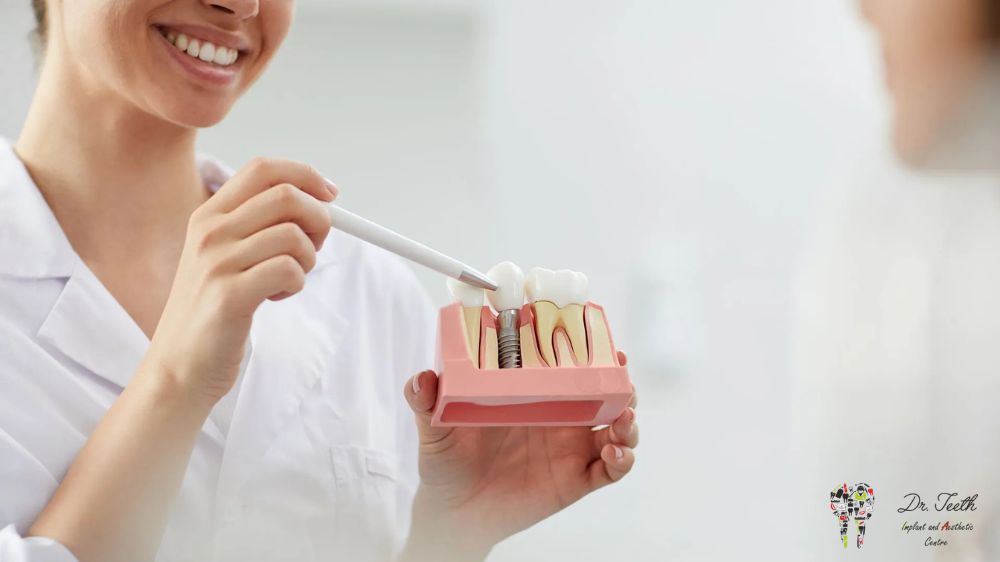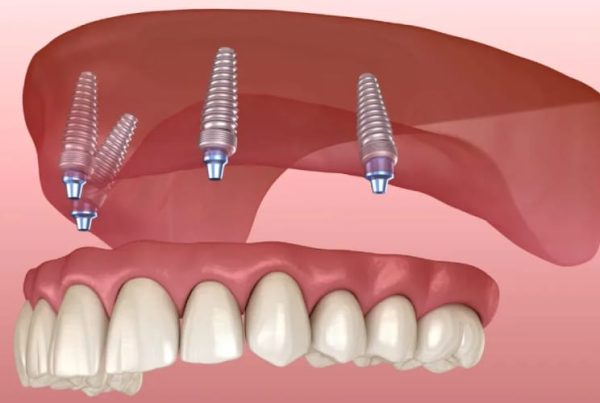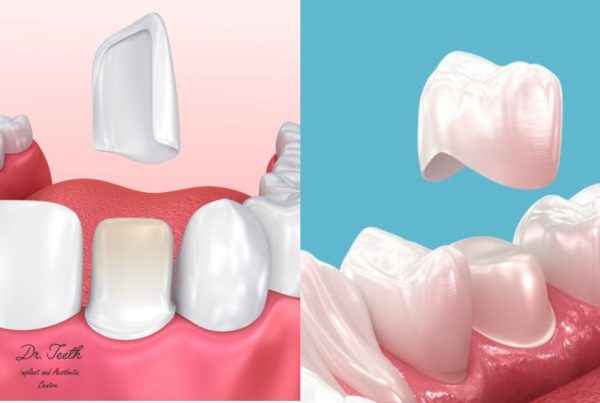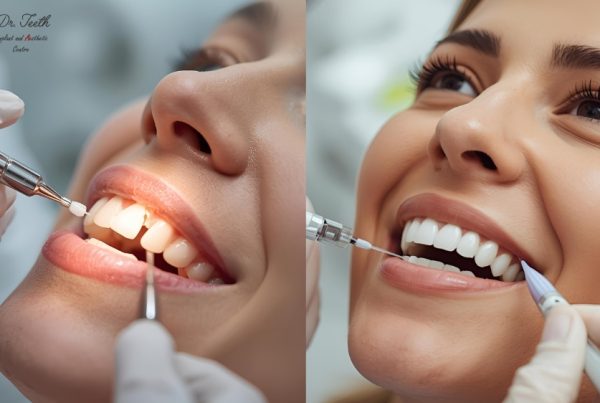Dental implants are a modern, reliable solution for replacing missing teeth, offering a natural look and long-term durability. However, the success of your treatment depends greatly on how you care for your mouth during the recovery phase. At Dr. Teeth, we believe that informed patients achieve the best results. This guide covers everything you need to know about Dental Implant Aftercare, from the immediate post-surgery phase to long-term maintenance.
Understanding the Dental Implant Process
A Dental Implant is a titanium post surgically inserted into the jawbone to act as a replacement tooth root. Once healed, it supports a crown, bridge, or denture. The healing process, known as osseointegration, allows the implant to fuse with the bone, providing a stable and permanent foundation for your new tooth.
While the procedure itself is highly successful, the way you care for your mouth in the days, weeks, and months afterward directly influences the longevity of your implant.
Immediate Aftercare: The First 24 Hours
The first day after surgery is crucial for recovery. Follow these steps to protect the surgical site:
- Control Bleeding: Bite down gently on gauze pads provided by your dentist for 30–45 minutes to reduce bleeding.
- Manage Swelling: Apply an ice pack on the cheek near the implant site for 15 minutes on and off during the first few hours.
- Rest: Avoid strenuous activities to prevent increased blood flow and swelling.
- Avoid Disturbing the Area: Do not touch the implant site with your tongue or fingers.
Your dentist may prescribe antibiotics and pain medication. Take them exactly as directed to minimize discomfort and prevent infection.
Eating and Drinking After Implant Surgery
Your diet plays a significant role in the healing process. For the first 24–48 hours:
- Stick to soft foods like yogurt, mashed potatoes, and smoothies.
- Avoid hot beverages that may increase bleeding.
- Refrain from alcohol and smoking, as they delay healing and increase the risk of implant failure.
- Stay hydrated, but avoid using straws, as the suction can dislodge the blood clot.
Gradually reintroduce firmer foods as advised by your dentist.
Oral Hygiene During Recovery
Good oral hygiene is critical to prevent infection and ensure the implant heals properly.
- Rinse your mouth with warm salt water 2–3 times daily, starting 24 hours after surgery.
- Brush your teeth carefully, avoiding direct contact with the surgical site for the first few days.
- Use a soft-bristled toothbrush to clean surrounding teeth and gums.
Your dentist may recommend a chlorhexidine mouthwash to reduce bacterial growth.
Managing Pain and Discomfort
Some swelling, bruising, and mild discomfort are normal. Over-the-counter pain relievers like ibuprofen can help manage symptoms. If pain increases after a few days instead of improving, contact your dental professional immediately.
The First Few Weeks: Monitoring Your Healing
During the first month, your implant undergoes the critical osseointegration phase. Here’s what to focus on:
- Avoid chewing hard or crunchy foods on the implant side.
- Continue with gentle brushing and flossing techniques.
- Watch for warning signs such as prolonged bleeding, severe pain, or swelling that worsens.
Long-Term Dental Implant Aftercare
Once your crown or restoration is placed, ongoing care is essential to protect your investment. Long-term Dental Implant Aftercare involves:
- Brushing twice daily with a soft toothbrush.
- Flossing around the implant to remove plaque buildup.
- Using interdental brushes for hard-to-reach areas.
- Visiting your dentist regularly for professional cleaning and implant check-ups.
Unlike natural teeth, implants are not susceptible to decay, but the surrounding gums and bone can still develop conditions like peri-implantitis if not properly maintained.
Lifestyle Habits That Affect Implant Success
Several habits can significantly impact your implant’s lifespan:
- Quit Smoking: Tobacco reduces blood flow to the gums, slowing healing.
- Limit Sugary Foods: High sugar intake can increase bacterial growth.
- Wear a Mouthguard: If you grind your teeth at night, a custom mouthguard can prevent damage to your implant.
Common Mistakes to Avoid
Many patients unintentionally jeopardise their recovery by making these mistakes:
- Skipping follow-up appointments
- Using abrasive toothpaste that scratches the crown
- Ignoring early signs of gum irritation
- Resuming hard chewing too soon
Avoiding these pitfalls ensures your Dental Implant remains stable and healthy for years to come.
When to Contact Your Dentist
Contact Dr. Teeth immediately if you experience:
- Persistent or worsening pain
- Excessive bleeding beyond 48 hours
- Implant mobility
- Swelling with fever or pus discharge
Early intervention can prevent more serious complications.
Conclusion
A successful Dental Implant not only restores your smile but also enhances your overall oral health. However, its longevity depends on how well you follow your Dental Implant Aftercare plan. By maintaining excellent oral hygiene, making smart dietary choices, and scheduling regular check-ups, you can enjoy a strong, functional, and beautiful smile for decades.
At Dr. Teeth, our goal is to provide patients with the tools and knowledge to protect their dental investments. With the right aftercare, your implant can truly be a lifelong solution.











